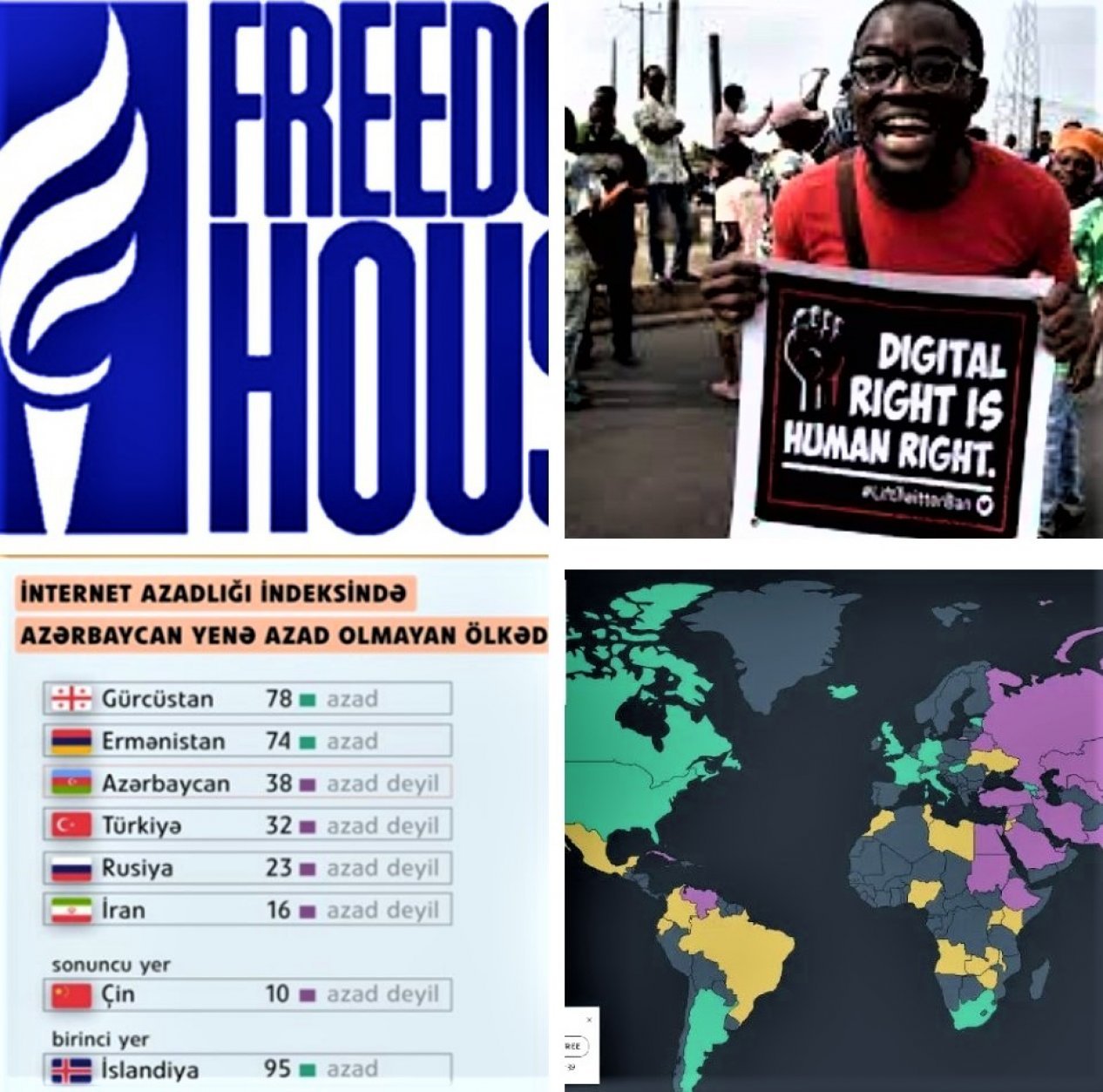
Freedom House has revealed its 2022 Internet Freedom Index. The organization classified internet freedom into three categories: free, partially free and not free. In the list, Georgia ranked 7th with 78 index points, and Armenia ranked 14th with 74 points among free countries. According to the organization's measurement criteria, Azerbaijan and Turkiye were included in the category of not free countries with 38 and 32 points, respectively.
Faktyoxla Lab. Has analyzed the Freedom House's ranking.
For research, let's pay attention to the current situation of the countries in terms of Internet and ICT, resources, infrastructure provision, the level of people's participation in IT, and other factors.
It is enough to look at the Digital 2022 Global Overview Report (DataReportal) to distinguish which country is better and freer in terms of Internet and IT. Since that research institute works together with about 100 professional ICT specialists, there is certainly no doubt about its report. According to the DataReportal index, the indicators determining internet freedom are not only measured by the specific weight of users. Here, two factors are specifically considered. One of them is penetration, i.e. technical capabilities to access the Internet and physical accessibility of the network. The second factor is the speed of the Internet. source
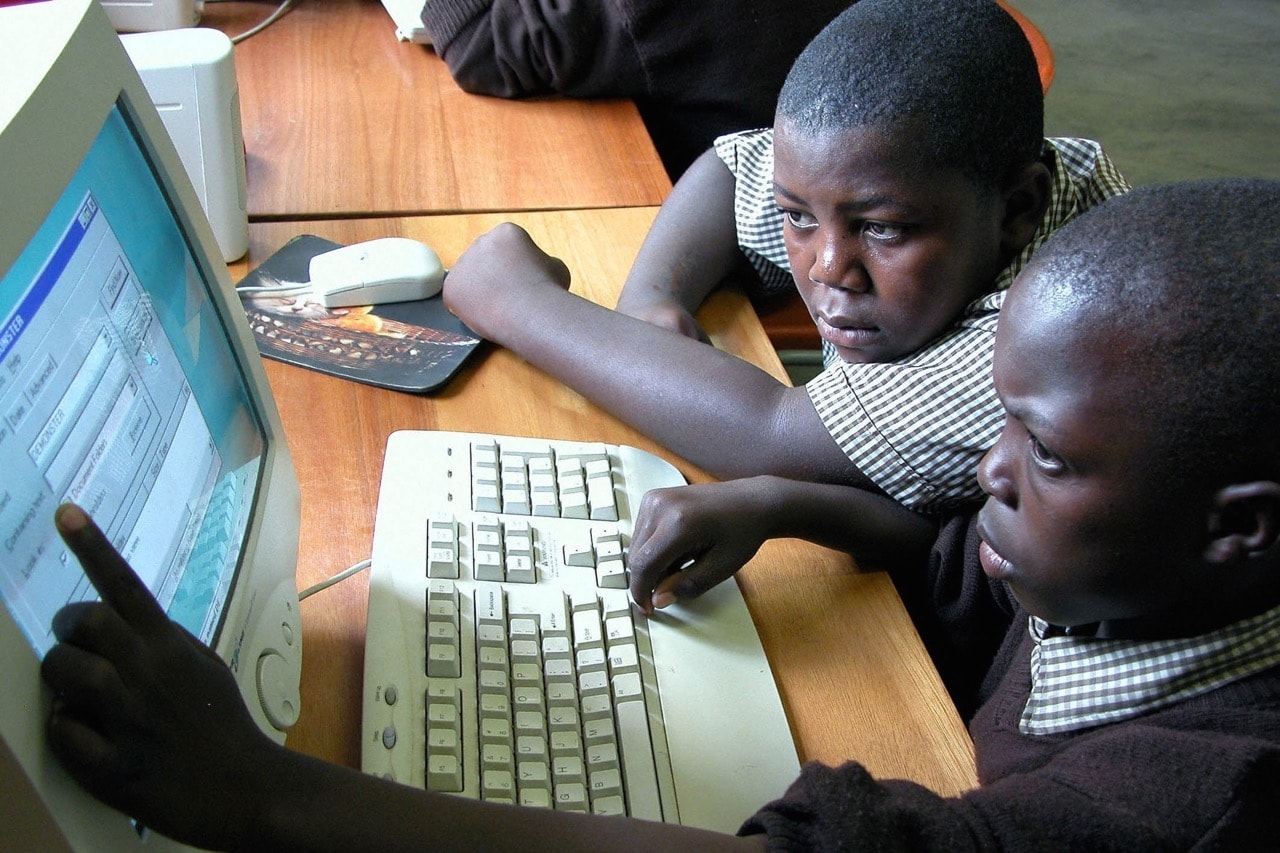
We can see the true picture of the Internet in Angola, an African country, which Freedom House placed in the top rank with 62 points, by paying attention to DataReportal. The report states that the number of Internet users in Angola, with a population of 34.5 million, is 12.4 million. That is, it is 2.8 times behind Azerbaijan according to the number of users and active participants with 34-36 percent. The average fixed internet connection speed is 12.26 Mbps. Internet traffic speed in Azerbaijan is 32.52 Mbit/s. Still 2.8 times higher than Angola. There are 2.75 million social media users in this country, which is only 6 percent of the population. (source) Rates in Angola are exorbitant, $240 for a connection for corporate users and $1,890 for an annual package. The cost of an hour of talking with the local telephone network is $14. The phone line subscription fee is $10 per month. The total number of Internet providers is only 5. The country has no 5G base at all. A country with such disastrous internet capabilities is ranked as one of the freest in the Freedom House report. source
For comparison, let's say that according to the statistics of 2020, the number of active social network users in Azerbaijan was 4.3 million people, which is 42.2 percent of the population. And 98.1 percent of users, or 4.22 million, access social networks through mobile phones. source
Russian version available here
Another example is Zambia (population 18.65 million), which is presented as a country with free Internet with a score of 58. The country has 5.48 million internet users, or 29 percent of its population. The number of social media users in this country is 2.6 million people, which means 14 percent of the total users. Internet traffic speed in Zambia is 12.7 Mbit/s. (3 times lower in Azerbaijan). Only eight providers operate in the country. For comparison, let's say that there are 800 internet service providers in Turkiye and more than 70 in Azerbaijan.
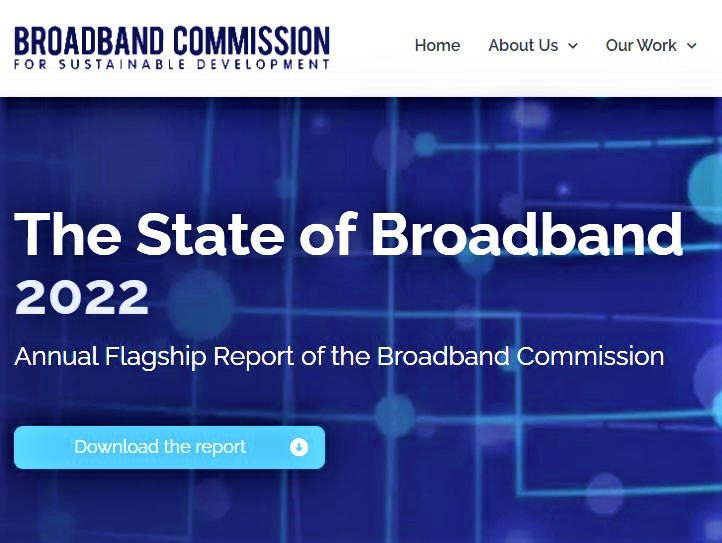
Or let's look at the Gambia, which is presented as another free internet country with a score of 56. The Gambia, with a population of 2.52 million, has 1.2 million internet users, about half the population. However, the Internet speed is not higher than 7 Mbit/s (5 times lower than in Azerbaijan). The number of social media users in this country is 461,000 people, which means 18 percent of the total Internet users. source
Let's also pay attention to the picture of Armenia in DataReportal, which Freedom House placed in one of the highest places with 74 points. The number of Internet users in Armenia, which has a population of about 3 million, is 1.98 million. This is 66.5 percent of the total population. The average mobile internet connection speed is 24.27 Mbps, and the average fixed internet connection speed is 27.93 Mbps. About 2.05 million social media users were from Armenia, which means 69 percent of the total population. source
It is noted in DataReportal that there are 8.32 million Internet users in Azerbaijan, a country with a population of 10.26 million. This is 81.1 percent of the total population. And there are 5.2 million social media users in the country, which is 50.7 percent of its population. In Turkiye, which has a population of 85.3 million, 69.95 million of the population are Internet users, which means 82 percent of the population. There are 68.9 million social media users in Turkiye, which is equal to 80.8 percent of the country's population. source
Such comparisons can be extended further. But the real truth is in sight; DataReportal reflects the pitiful state of the IT sector of countries like Rwanda, Tunisia, Uganda, Zimbabwe, Cambodia, Bangladesh, Colombia, Ecuador, Ghana, Indonesia, Iraq, Lebanon, Kenya, Libya, Nigeria, Nicaragua and Armenia, which Freedom House presents as countries with free Internet and thus, better than Azerbaijan and Turkiye.
Let's refer to another reliable source. The State of Broadband 2021 report of the International Telecommunication Union (ITU), known as the most honest and professional organization in the world for Internet and ICT services, also provides a clear picture of the state of the Internet in countries around the world. In that report, Azerbaijan ranked 36th regarding access to internet services and the number of users. Azerbaijan ranks 53rd in terms of the number of broadband Internet users per 100 people and leaves Russia, Turkey, Iran, Kazakhstan and Armenia behind.
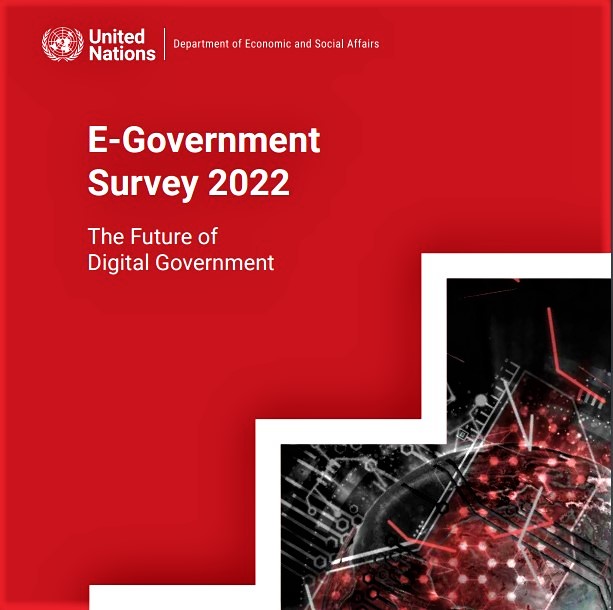
The State of Broadband report is based on estimates before 2021. In the last 2 years, Azerbaijan has improved its position by achieving significant progress in the number of general and broadband Internet users. So, currently, the number of internet users per 100 people in Azerbaijan is 85 people. The world average is 63, while the European average is 83 people. That is, Azerbaijan has significantly exceeded both world indicators. source
Another fairest and most honest evaluation index of digital development and Internet resource capabilities is the UN's E-Government Development Index. This report is prepared by a professional ICT team, not some non-ICT policy brokers like Freedom House. The methodology of the report is the current state of the ICT infrastructure in the countries, the number of opportunities and uses of digital services, the content, structure and ease of use of electronic portals, the accessibility of services to each individual of the society, the level of mobile services, the volume of the broadband internet network, the usage of telephone and mobile Internet per capita, the application of innovations and other factors. The report is classified based on these indicators and divided into "Online service," "Telecommunications infrastructure" and "Human capital" sub-indexes and into "highest", "high," "medium," and "low" groups of states. Azerbaijan scored 61 points out of 100 possible points for the "Online Services" sub-index, 67 points for the "Telecommunications Infrastructure Development" sub-index, and 79 points for "Human Capital". As can be seen, Azerbaijan scored higher than the average for all three sub-indices.
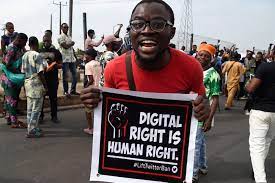
The international community is looking for basic statistics related to Internet freedom opportunities and digital development as a reference source in the indexes of the UN, the International Telecommunication Union and the Digital Global Overview. In these reports, position of Azerbaijan is prominent. Therefore, there is no need to comment, except that the reports of the authoritative organizations themselves expose the false lists of political brokers like Freedom House.
Thus,
Freedom House is known for issuing bespoke and biased reports that are politically biased and dependent on various financial lobbyists in America. This is not the first time this organization has put Armenia, an underdeveloped provincial country, in first place every time thanks to the donation of the Armenian lobby.
There is no doubt that the Internet Freedom Index of this organization was prepared by order, like the previous ones.
While Freedom House primarily conducts research on human rights, democracy, social and political content, it shows itself to be doing work outside its purview, producing reports on digital technology and ICT.
The assessment of the countries in this report is based on fraud, bias, prejudice and orders from some political forces and lobbying organizations.




















